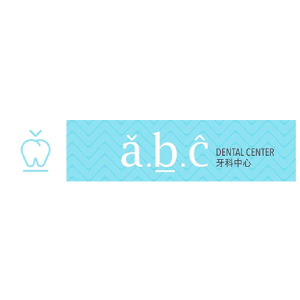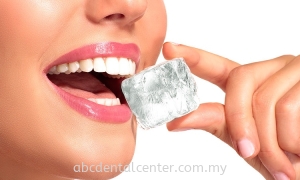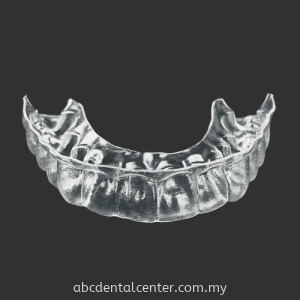Recent Updates

ABC Dental Sdn Bhd added new video
Aug 26, 2019 at 04:18 pm —
Heavy Calculus Removal! 清除多年牙结石

ABC Dental Sdn Bhd added new video
Aug 26, 2019 at 04:16 pm —
abc Dental Center

ABC Dental Sdn Bhd added new photo
Aug 26, 2019 at 03:44 pm —
Tooth sensitivity treatment 敏感牙齿治疗
Why does my tooth feel sensitive? You will feel a sharp sensitivity when drinking cold drinks, eating ice cream or even cold air when the dentin layer of the tooth is exposed. Theres a lot of factors that led to the exposure of the dentin layers. What are the causes for sensitive teeth? brushing teeth too hard teeth grinding at night using hard bristle tooth brush receeding gum gastroesophageal reflux (GERD) teeth bleaching decayed, broken tooth TOOTH SENSITIVITY Definition Tooth sensitivity occurs when the enamel that protects our teeth gets thinner, or when gum recession occurs, exposing the underlying surface, the dentin, thus, reducing the protection the enamel and gums provide to the tooth and root. Signs & Symptoms If hot, cold, sweet or very acidic foods and drinks, or breathing in cold air, makes your teeth or a tooth sensitive or painful, then you may have sensitive teeth. Tooth sensitivity can come and go over time. What is Tooth Sensitivity? Tooth sensitivity is a common name for dentin hypersensitivity or root sensitivity. If hot, cold, sweet or very acidic foods and drinks, or breathing in cold air, makes your teeth or a tooth sensitive or painful then you have sensitive teeth. Is Tooth Sensitivity Common? Tooth sensitivity is very common and it has been estimated that approximately half the population experiences tooth sensitivity. Tooth sensitivity can come and go over time. Why does Tooth Sensitivity (Dentin Hypersensitivity) Happen? Tooth sensitivity is usually caused by dentin on root areas exposed due to receded gums or periodontal disease. Receded gums are very common and up to four fifths of people have gum recession by the time they are 65. When the root of a tooth becomes exposed it does not have a layer of enamel like the crowns of your teeth. Instead the roots have a very soft covering called cementum, which once lost leaves the dentin of the root exposed. Overzealous brushing or using a very abrasive toothpaste can also cause abrasion of the tooth's enamel surface and expose dentin. A very acidic diet – for example a diet with a lot of citrus food, pickles or sodapop — can cause tooth erosion and dissolve the tooth surface, exposing the dentin. Bulimia and GERD can also result in dental erosion and sensitivity due to acid in the mouth. It is important to tell your dentist or hygienist if you have any sensitive teeth, so that he or she can examine your mouth, see if the problem is tooth sensitivity (dentin hypersensitivity) and help you choose the best treatment. When teeth are sensitive it can be painful to brush them and if you brush poorly because of pain then there is more risk of tooth decay and gum disease. Pain after hot, cold, sweet or acidic food and drinks can also be a sign of decay with a cavity or hole in the tooth, or a sign of a broken tooth, and if this is the case your dentist will treat you with a filling or other treatment. What Makes Exposed Dentin Painful? Dentin contains thousands of tiny channels that are only visible with a microscope. These channels run from the surface, through the dentin to the nerve center of the tooth — the pulp. The channels contain fluid and after eating or drinking hot or cold foods, the fluid in these tiny channels moves and irritates the nerves in the tooth, causing pain. Can I Prevent Tooth Sensitivity? You can reduce your chances of getting tooth sensitivity by keeping your mouth as healthy as possible with good oral hygiene to help prevent receding gums and periodontal disease. Brushing and flossing properly as recommended by your dentist or hygienist and using a low abrasion toothpaste can help reduce the chance that you will have tooth sensitivity. A diet that is not acidic also helps prevent tooth sensitivity. Ignoring your sensitive teeth can lead to other oral health problems, especially if the pain causes you to brush poorly making you vulnerable to tooth decay and gum disease. What Can I Do if I Have Sensitive Teeth? First tell your dentist or hygienist. He or she can help you and see what the best treatment is. It is also important to tell your dentist or hygienist in case the cause is not dentin (root) hypersensitivity and the tooth is sensitive due to a more serious problem. To treat tooth sensitivity, your dentist or hygienist may recommend that you use a low abrasion toothpaste specially made for sensitive teeth — a desensitizing toothpaste. These toothpastes make the teeth less sensitive if you brush with them twice a day and also contain fluoride to help protect your teeth against decay. Alternatively, your dentist may prescribe a brush-on fluoride gel or a fluoride rinse, or a high fluoride level toothpaste that is specially formulated to make your teeth less sensitive and provides extra protection against decay. These treatments happen at home when you are brushing your teeth and are inexpensive. Other treatments for sensitive teeth that your dentist or hygienist can provide in the dental office are also available. These include treatments that are painted onto the teeth &— such as fluoride varnishes and plastic resins, fillings if a lot of tooth area has been lost, and lasers. .Top Ways to Prevent TOOTH SENSITIVITY Daily brushing – Brushing properly twice daily for two minutes with toothpaste that does not have high levels of abrasives can help reduce the chance of tooth sensitivity Flossing – flossing once a day can help get rid of plaque on the gum line and between the teeth, and can help reduce instances of tooth sensitivity Follow a diet low in acid – a diet low in acidic foods and drinks also helps prevent tooth sensitivity Research has proven that low level laser therapy effectively reduces teeth sensitivity to hot and cold food and drinks. So let us help you enjoy your next ice cream! read more

ABC Dental Sdn Bhd added new photo
Aug 20, 2019 at 11:29 am —
Removable retainer 牙齿固定器
Removable Essix retainers are made entirely our of transparent plastic. They are less noticeable than the traditional wire retainers. Though your teeth may feel firmly set in your mouth, they move when under constant pressure, and can assume new positions in the mouth all on their own. Essix retainers maintain the intended position of thet teeth following orthodontic treatment, all while providing minor corrections to slightly misaligned teeth if needed. How do it take care of it? Rinse the retainer in cold water every time you take it out and before you put it back in. Store the retainer in a braces plastic case whenever you aren't wearing it. Don't brush the retainer with toothpaste, as it can scratch the surface. Brush the retainer after each meal with cool to luke warm water and a soft toothbrush. Don't put the retainer in hot water, which will shrink it. Wash the retainer with a specialized retainer cleaner once every two to three months. read more


